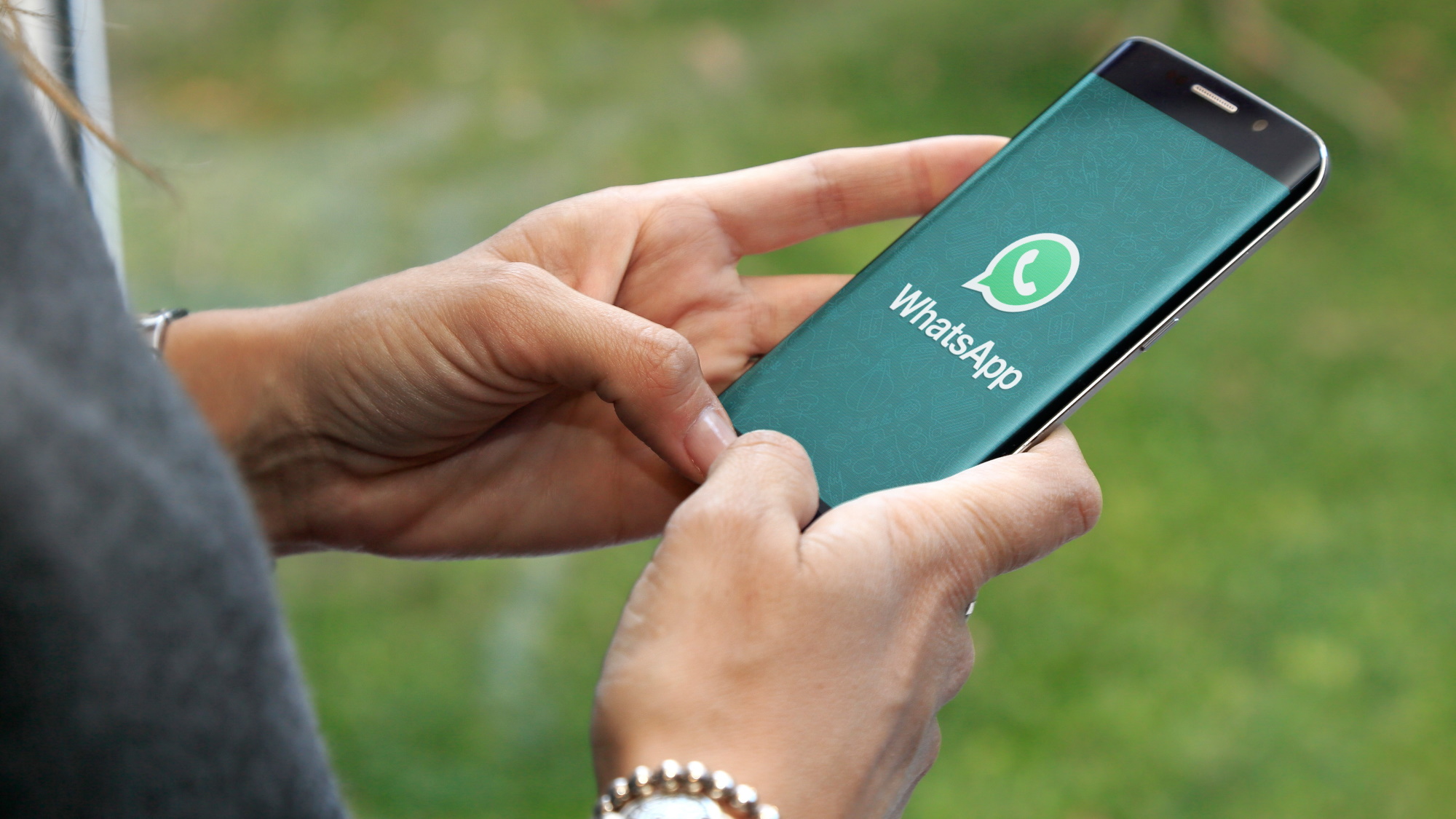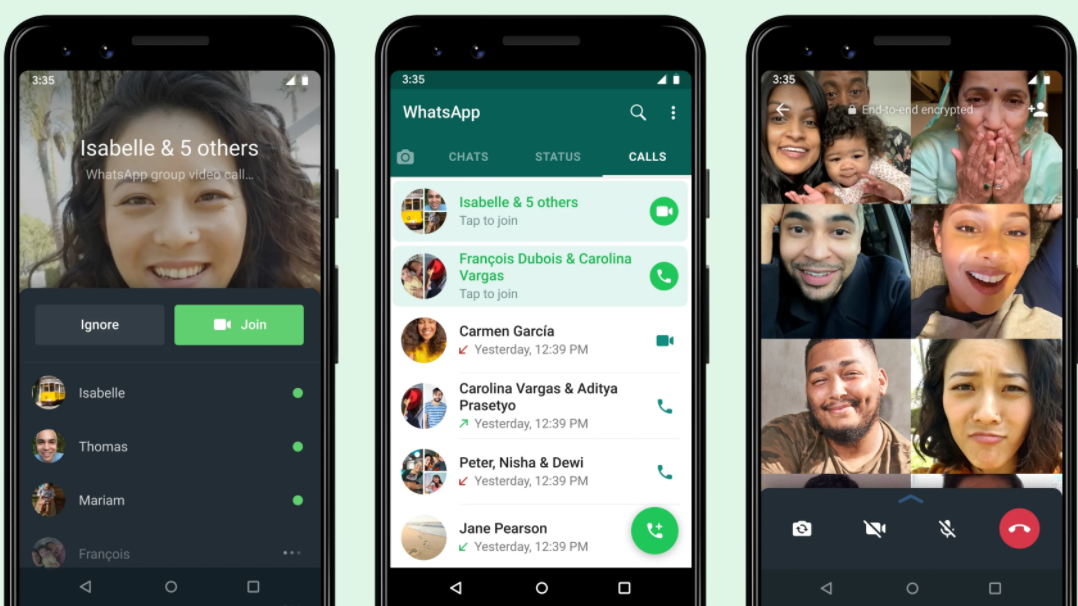How to unblock WhatsApp and use it anywhere
Get around bans on WhatsApp in your workplace or abroad

Sign up for breaking news, reviews, opinion, top tech deals, and more.
You are now subscribed
Your newsletter sign-up was successful
WhatsApp is a seriously popular messaging service owned by Facebook, with Zuckerberg’s social media giant buying it back in 2014 for nearly $20 billion. And if you've landed on this guide, you're likely among the app's two billion users.
While there may be a ridiculous amount of people out there happily using WhatsApp, there are some who can’t do so - either permanently or temporarily.
Whether that's because you're in a country that has enforced a WhatsApp ban altogether, or you attend a workplace, school or college that does likewise, you face being left WhatsApp-less.
But not if you’re running one of the best VPNs, which can allow you to sneak around any such bans. Here we’ll give you a simple step-by-step guide to how that process works.
Why would I want to unblock WhatsApp?
WhatsApp is not usually a service that you would need to unblock, or require a VPN to access under normal circumstances. However, there are two main scenarios when you may need a little assistance to use your go-to messaging app:
Offices and schools
Offices, schools and colleges may block WhatsApp - and, indeed, other social media, messaging or video apps - due to the potential for it to be a time sink and generally impact negatively on employee or student productivity.
Travelling abroad
Some countries have banned WhatsApp entirely. That might be because the regime in power fears an encrypted messaging service (which it cannot breach) that interferes with its surveillance powers, or maybe due to WhatsApp messing with income from state telecoms outfits. So, if you try to use the service in those nations, you’ll obviously be out of luck.
The inability to use WhatsApp in China is probably the most renowned example. The ruling party have cracked down on WhatsApp for years now and, if you travel there, you won’t be able to use the service (though there are anecdotal reports that suggest it may occasionally work, intermittently). The Chinese have ‘WeChat’ instead.
Other countries that have hit WhatsApp with the ban include United Arab Emirates and North Korea, and in the past it has been outlawed in Brazil at times. Recently, Cuba has come down hard on social media and messaging services, too.
Maybe you’ll find yourself on holiday in one of these places or maybe you actually live there, but whatever the case, downloading a VPN can help get you out of a pickle and side-step any ban by making your smartphone appear to be in a different geographical location altogether.

How to unblock WhatsApp - step-by-step guide
- Choose your VPN - If you already have one, you should be good to go, as most reputable providers will get around a WhatsApp ban. If not, a quick look at our top VPN list will help you get started.
- Install the VPN app - Once signed up for the VPN, head to the App Store (iPhones) or Google Play Store (Android phones) and download the relevant app. Again, all decent providers have a mobile VPN app as standard.
- Open the VPN app - You’ll have to sign into your account and agree to privacy terms and required permissions, too.
- Hit ‘connect’ - The app will make it very obvious what to press to turn on your VPN
- Select a server - The VPN app will automatically connect you to the most optimal server for you. To unblock WhatsApp at an office or school, you just want the fastest, local server that will make you appear to be outside the building - and you're done! If you’re facing a country-wide block though, you’ll need to continue with the remaining steps...
- Choose another location - Find the list of VPN server locations - usually by tapping on ‘location’ (or something similar) or using the geographical map which is provided in app. Pick a server outside of the country you’re in.
- Use WhatsApp as normal - You have successfully unblocked WhatsApp!
Unblock WhatsApp: what VPN should I use?
When it comes to WhatsApp, our first choice for unblocking duties is ExpressVPN.
This provider is top of our list of the best VPN services for many good reasons and has a great track record for unblocking geo-restricted services (e.g. Netflix, BBC iPlayer, etc). It has a ton of servers across more than 90 countries around the world, giving you lots of options for evading country-wide blocks while finding a suitably speedy server. What’s more, it comes recommended as the best China VPN, if that’s your specific use case.
ExpressVPN also boasts impressive obfuscation measures to help ensure the VPN isn’t detected and blocked, plus overall it offers a high-quality service in terms of performance, customer support if you run into trouble, and more.
NordVPN is a great alternative, offering a slightly more affordable service, but still providing top-quality obfuscation tech. And, indeed, a dedicated team to ensure the VPN keeps working in regimes where detection and interference with VPN unblocking happens.
In fact, we'd back any of our top Android VPN or iPhone VPN picks. So take a look at those guides if you're still unsure or want extra information.
Is it illegal to unblock WhatsApp with a VPN?
WhatsApp won’t be bothered that you’re accessing its service with a VPN, so you’ve no worries on that score.
However, where you could run into trouble is in the scenario where you’re using a VPN to access WhatsApp in a country where it’s illegal to run a VPN – not an issue with WhatsApp, obviously, but with the ruling regime. In the case of VPNs being banned by the authorities, you obviously use a VPN service entirely at your own risk. If you are somehow caught using a VPN to go online, then you could face unpleasant consequences.
If you aren’t sure, then, it’s a good idea to check the exact legal status of VPN usage in any given country where you’re considering accessing WhatsApp with the aid of a VPN provider.
Read more:
- So...what is a VPN anyway? Understand what the software is
- VPN uses: discover 10 brilliant ways to get the most from your software
- Unblock Netflix, iPlayer, Peacock and more with a streaming VPN
Sign up for breaking news, reviews, opinion, top tech deals, and more.
Darren is a freelancer writing news and features for TechRadar (and occasionally T3) across a broad range of computing topics including CPUs, GPUs, various other hardware, VPNs, antivirus and more. He has written about tech for the best part of three decades, and writes books in his spare time (his debut novel - 'I Know What You Did Last Supper' - was published by Hachette UK in 2013).